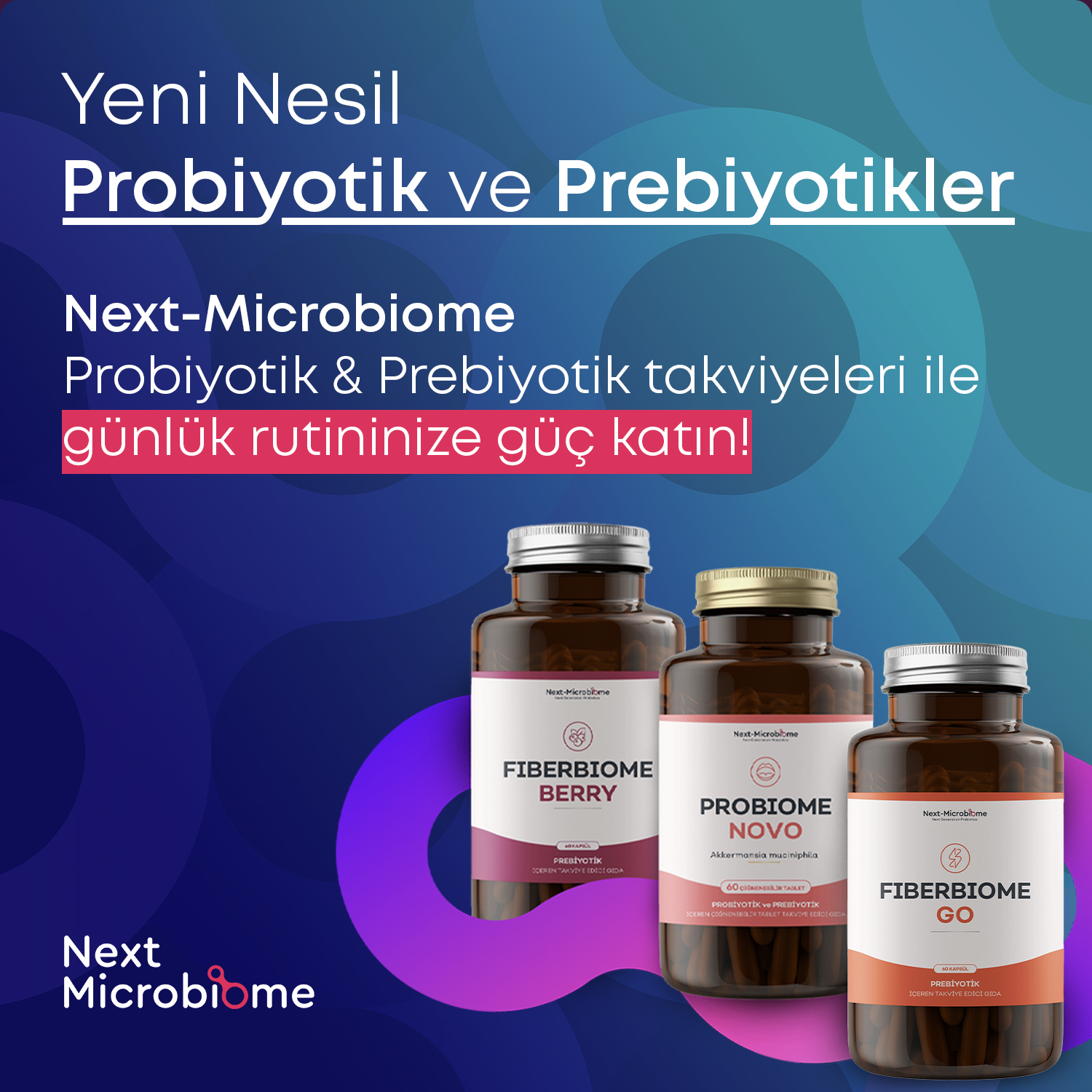Humanity has been pursuing a long, healthy, and energetic life for centuries. While genetic heritage, dietary habits, exercise, and environmental conditions are known parts of this equation, recent scientific research highlights the least known but most decisive element of this picture: Gut Microbiota, also known as gut flora.
Our microbiota, consisting of trillions of microorganisms, not only plays a role in digestion; it regulates the immune system, affects mood, maintains weight balance, and even directs our aging process. In this complex ecosystem, there is a special bacterium that has emerged in recent years as the "star of the new generation probiotics": Akkermansia muciniphila.
The Deep Connection Between Longevity and Gut Health
Longevity is not just about reaching old age but being able to spend those years healthy and productive. Research conducted in regions known as "Blue Zones," where the world's longest-living and healthiest communities are studied, reveals that the gut microbiotas of these people are more diverse and balanced. This diversity is directly linked to the integrity of the gut barrier and therefore to inflammation levels.
In a condition known as "leaky gut," the intestinal wall weakens, allowing toxins to leak into the bloodstream, leading to systemic inflammation. This chronic inflammation is one of the fundamental biological mechanisms of aging. Cardiovascular diseases, diabetes, dementia, and even some types of cancer are often the result of this "silent inflammation" process.
It is precisely at this point that bacteria like Akkermansia muciniphila emerge as the body's most silent but powerful protectors.
Akkermansia Muciniphila: Guardian of the Mucus Layer
Akkermansia muciniphila lives in the protective mucus layer covering the intestinal wall. Its name, which means "mucus-loving," actually summarizes its function. While this bacterium feeds on mucus, it also stimulates the production of new mucus. Thus, it constantly renews and strengthens the defense barrier enveloping the intestinal wall.
- Barrier Strengthening: Prevents harmful bacteria and toxins from leaking into the intestinal wall.
- Inflammation Reduction: Lowers chronic inflammation levels in the body.
- Metabolic Balance: May reduce insulin resistance and prevent fat storage.
- Production of Short-Chain Fatty Acids: Supports the main energy source of intestinal cells like butyrate.
Clinical studies show that individuals with high levels of Akkermansia have lower body fat percentage, better glucose tolerance, and a more balanced immune system.
Chewable Akkermansia: Innovation Through Technology
For years, it was difficult to use Akkermansia muciniphila as a supplement because this bacterium was highly sensitive to oxygen. However, thanks to advancing production technologies, it can now be offered in a chewable form and in a stable state.
This new generation formulation not only provides ease of use but also enhances the bacterium's resistance to stomach acid starting from the oral microbiota, ensuring its effectiveness until it reaches the intestines. Thus, a more natural colonization process occurs in the body — working in harmony with the microbiota's own ecosystem.
The Special Role of Akkermansia in Women's Health
Recent studies reveal that Akkermansia plays a significant role in women's health in particular. This bacterium indirectly supports not only the gut but also the balance of vaginal microbiota. By acting through the gut-brain-hormone axis, it regulates estrogen metabolism, alleviates PMS symptoms, and may increase energy levels.
Furthermore, a decrease in Akkermansia levels in women during menopause may increase the risk of metabolic syndrome and inflammation. Therefore, probiotic supplements can play a critical role in preserving intestinal mucus layer and overall hormonal balance, especially during this period.
Natural Ways to Support Akkermansia
- Consume Prebiotic Foods:
Onions, garlic, leeks, asparagus, artichokes, and red fruits high in polyphenols (pomegranates, blueberries, grapes, cranberries) are food sources for Akkermansia. - Engage in Regular Exercise:
Research shows that physical activity supports Akkermansia levels by increasing gut microbiota diversity. - Reduce Stress:
Chronic stress weakens the gut barrier. Breathing exercises, meditation, and adequate sleep maintain this balance. - Consider Scientifically Supported Supplements:
Especially when targeting metabolic health, weight management, or intestinal barrier integrity, supplements containing chewable Akkermansia muciniphila offer a modern solution. It is important to consult your doctor before use.
The Hero of Longevity
Longevity is not just about extending heartbeats but living each day stronger, livelier, and more balanced. In this journey, our most important ally is the trillions of microorganisms silently working within us.
Akkermansia muciniphila is one of the most special of these silent heroes. It protects the gut barrier, soothes inflammation, balances metabolism, and keeps the body youthful.
Perhaps the secret to long life is not as far away as we seek outside — it is right within us, hidden in our intestines.
San Francisco, California, USA
Ali R. AKIN

